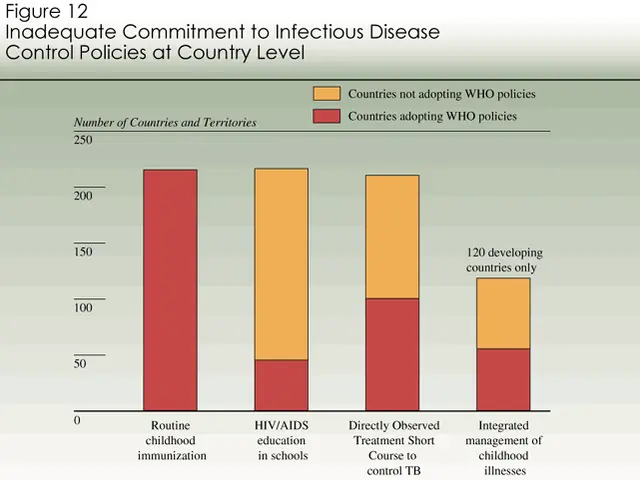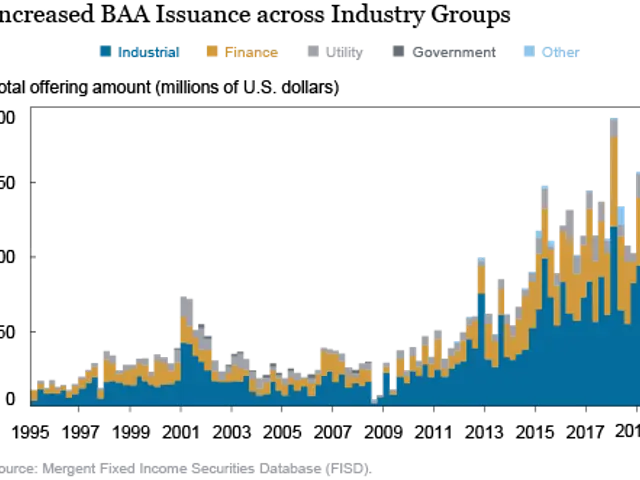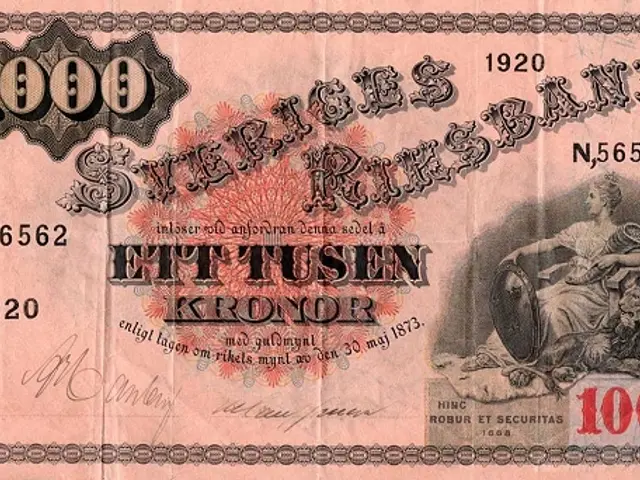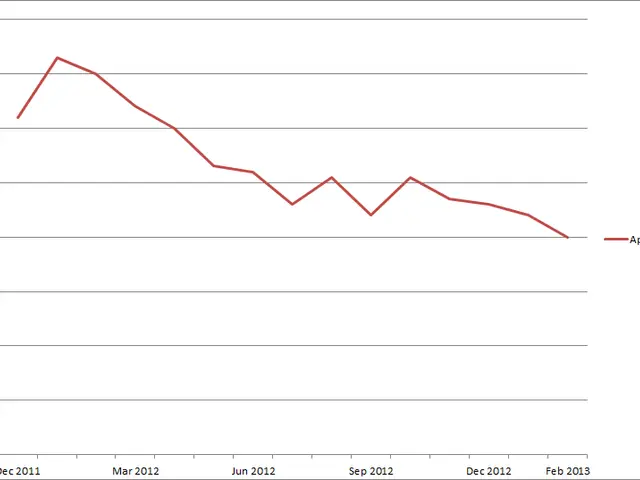Little progress in Indonesia's Stock Market observed
In the wake of President Donald Trump's meeting with Ukrainian President Volodymyr Zelenskyy and other European leaders at the White House, the global financial landscape is showing signs of uncertainty. The ongoing conflict between Russia and Ukraine continues to cast a shadow over the Asian markets, leading to a mixed and flat performance.
The Jakarta Composite Index (JCI) closed at 7,898.38 on Friday, marking a loss after a five-day winning streak. The index traded between 7,898.37 and 8,017.07 during the day, with various changes in the stock prices of companies such as Bank CIMB Niaga, Bank Danamon Indonesia, Bank Negara Indonesia, Bank Central Asia, Bank Rakyat Indonesia, Indosat Ooredoo Hutchison, Indocement, Semen Indonesia, Indofood Sukses Makmur, United Tractors, Astra International, Energi Mega Persada, Astra Agro Lestari, Aneka Tambang, Vale Indonesia, Timah, Bumi Resources, and Bank Mandiri.
Vale Indonesia experienced the largest percentage drop at 6.11 percent, while Energi Mega Persada saw the largest percentage increase at 1.75 percent.
The Asia-Pacific markets are expected to follow suit and remain mixed and flat, influenced by the ongoing conflict between Russia and Ukraine. The rise in crude oil prices may be due to investors focusing their attention on the meeting between the U.S. and Ukrainian presidents amid rising geopolitical tensions surrounding the Russian invasion of Ukraine.
Historically, the conflict has influenced global commodity prices, energy supplies, and investor sentiment, which typically affect Asian markets due to their dependence on energy imports and export-oriented economies. Disruptions in energy supply from Russia have influenced global oil and gas prices, important for Asian economies. Uncertainty due to geopolitical risk tends to increase market volatility and investor caution in Asia. Sanctions on Russia and trade disruptions have ripple effects on supply chains involving Asian countries.
Given the continued conflict and geopolitical tension as of August 2025, Asian markets are likely experiencing ongoing volatility and risk concerns related to energy prices and trade flows, although specific real-time impacts would need current financial market data for confirmation.
Meanwhile, the U.S. markets were mixed and flat on the previous day, with the Dow, NASDAQ, and S&P 500 all ending with minimal changes. The Dow and S&P 500 ended with slight losses, while the NASDAQ ended with a slight gain.
As the situation in Ukraine continues to unfold, investors and market analysts will closely monitor developments, aiming to navigate the uncertainties and maintain a strategic approach to their investments.








